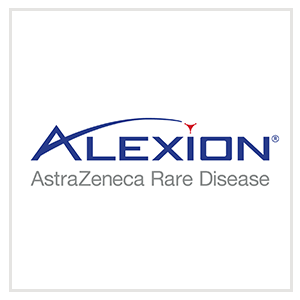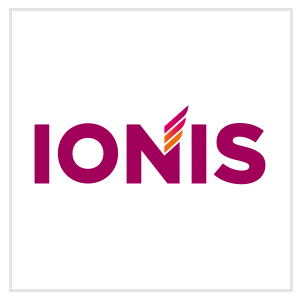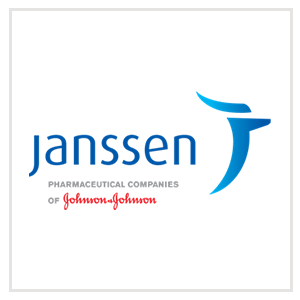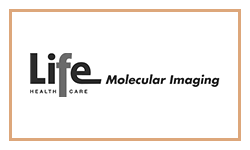Andrew Stephens, MD, PhD
Chief Medical Officer
Life Molecular Imaging (LMI)
BIO+
Chief Medical Officer
Life Molecular Imaging (LMI)
Dr. Stephens has more than 30 years of experience in the pharmaceutical industry, primarily in the areas of neurodegenerative diseases, oncology, and diagnostic imaging. Previously, he was Chief Medical Officer at Piramal Imaging and the VP Head Experimental medicine Oncology/Diagnostic Imaging for Bayer Pharma. He has held positions of increasing responsibility at NeXagen/NeXstar, Gilead, Schering, AG, and OSI Pharmaceuticals.
Ahmad Masri, MD MS
Director, Hypertrophic Cardiomyopathy Center; Director, Cardiac Amyloidosis Program; & Assistant Professor of Medicine
Oregon Health & Science University
BIO+
Director, Hypertrophic Cardiomyopathy Center; Director, Cardiac Amyloidosis Program; & Assistant Professor of Medicine
Oregon Health & Science University
Dr. Masri’s specializes in caring for patients with conditions that result in abnormally thickened hearts, such as hypertrophic cardiomyopathy, amyloidosis and Fabry’s disease. Dr. Masri trained in Internal Medicine at the Cleveland Clinic, where he developed his passion for improving the lives of patients with heart disease. Subsequently, he moved to the University of Pittsburgh, where he completed training in cardiovascular diseases. Dr. Masri is also an expert in cardiac imaging. He spent two years at the University of Pittsburgh supported by a grant from the National Institute of Health, focusing on cardiac magnetic resonance imaging, nuclear cardiology, and echocardiography. These modalities constitute the cornerstone of diagnosing and following up patients with thickened hearts. From diagnostic approaches to therapeutics, Dr. Masri led numerous research projects that resulted in publications in leading academic journals.
Ashutosh Wechalekar, MBBS, MD, FRCP, FRCPath, DM
Senior Lecturer & Honorary Consultant Hematologist
University College London
BIO+
Senior Lecturer & Honorary Consultant Hematologist
University College London
Ashutosh Wechalekar is a senior lecturer and honorary consultant hematologist at University College London and the Royal Free London NHS Foundation Trust. He trained in hematology in the UK and Canada. His academic and clinical interests are focused on amyloidosis and multiple myeloma. In particular, he is interested in characterization and treatment of systemic AL amyloidosis as well as multiple myeloma, including clinical trials of new and novel agents in these disorders. He has published widely in these areas.
August Hofling, MD, PhD
Deputy Director, Division of Imaging and Radiation Medicine in the Center for Drug Evaluation and Research
U.S. Food and Drug Administration
BIO+
Deputy Director, Division of Imaging and Radiation Medicine in the Center for Drug Evaluation and Research
U.S. Food and Drug Administration
Alex Hofling is the Deputy Director of the FDA’s Division of Imaging and Radiation Medicine in the Center for Drug Evaluation and Research. In addition to his current role in the development and regulation of medical imaging products, he has experience in the clinical practice of radiology and in translational research. He completed an MD/PhD program at Washington University in St. Louis with thesis work in molecular biology. Following residency at the Mallinckrodt Institute of Radiology and board certification in diagnostic radiology, he completed fellowship training in magnetic resonance imaging at the University of San Diego, California. He joined the FDA in 2016.
Brett W Sperry, MD
Cardiology, Heart Failure and Transplantation Cardiology
Saint Luke's Mid America Heart Institute
BIO+
Cardiology, Heart Failure and Transplantation Cardiology
Saint Luke's Mid America Heart Institute
Dr. Brett W. Sperry is a cardiologist at Saint Luke’s Mid America Heart Institute with a subspecialty in Advanced Heart Failure, Transplantation, and Mechanical Circulatory Support. He is an Associate Professor of Medicine at the University of Missouri-Kansas City.
Dr. Sperry was born in Connecticut and completed an undergraduate degree in Economics followed by medical school and Internal Medicine residency at Georgetown University in Washington, DC. He completed fellowship training in both Cardiovascular Medicine and Advanced Heart Failure and Transplantation at the Cleveland Clinic in Cleveland, Ohio.
He is board certified in Internal Medicine, Cardiovascular Medicine, Advanced Heart Failure and Transplantation, Nuclear Cardiology, and Echocardiography.
His clinical and research interests include heart transplantation, mechanical circulatory support, restrictive cardiomyopathies (such as cardiac amyloidosis and sarcoidosis), and nuclear imaging.
Christophe Sirac, PhD
Professor
University of Limoges, France
Clemens Mittmann, MD
Federal Institute for Drugs and Medical Devices (Germany)
BIO+
Federal Institute for Drugs and Medical Devices (Germany)
Dr. Clemens Mittmann works at the Federal Institute for Drugs and Medical Devices (Germany), Department of Diabetes and Cardiovascular Diseases. He has been involved in cardiovascular procedures and the development of regulatory guidelines at the European Medicines Agency (EMA) as a clinical assessor, head of unit and member of the Cardiovascular Working Party and as member of the Scientific Advice Working Party of the EMA.
Dr. Mittmann is board certified medical specialist in Clinical Pharmacology as well as in Pharmacology and Toxicology. After finishing his medical studies in Germany and the USA, Dr. Mittmann graduated at the University of Munich, Germany. He completed Post Graduate studies in Molecular Biology at the University of Hamburg and his medical fellowship at the University Hospital of Hamburg, Germany (Cardiology/Pharmacology). He was Scholarship Holder and Research Awardee of the German Heart Foundation e.V.
Area of research: Signal transduction in heart failure and cardiovascular disease.
Cristina C. Quarta, MD PhD
Senior Director, Clinical Development and Translational Sciences
Alexion, AstraZeneca Rare Disease
BIO+
Senior Director, Clinical Development and Translational Sciences
Alexion, AstraZeneca Rare Disease
I am an MD and a cardiologist by training, with a PhD in medical sciences from the University of Bologna (Italy).
Since I was a medical student, I developed profound interest in systemic amyloidosis, a group of rare disorders caused by protein misfolding, with great impact on patients’ quality of life and life span. In the last 15+ years I have dedicated my career to untangling the diagnostic challenges and treatment options for different forms of amyloidosis affecting the heart. My PhD project was indeed aimed at improving the diagnosis and treatment of cardiac amyloidosis.
I have worked at three major international Centers of Excellence for amyloidosis (Bologna, Italy; Boston, USA; London, UK) and I have become a worldwide recognized expert in the field, with over 70 publications in peer reviewed journals of high impact, including JACC, Circulation and NEJM. I have contributed to international guidelines for the diagnosis, monitoring, and treatment of amyloidosis.
In 2019, I joined Alexion, AstraZeneca Rare Disease, attracted by the development of CAEL-101 for the treatment of AL amyloidosis, with the ambition of delivering first and best in class treatment to patients affected by this dreadful disease.
At Alexion, I am a Senior Director in Clinical Development and Translational Sciences; I am the Global Clinical Lead for the CAEL-101 program (AL amyloidosis), NI006 program in partnership with Neurimmune AG (ATTR amyloidosis), and I serve as Medical Advisor for ALXN-2060 program (ATTR amyloidosis).
Cynthia Welsh, MD
Medical Officer, Rare Diseases Team; Division of Rare Diseases and Medical Genetics
Center for Drug Evaluation and Research (CDER), Food and Drug Administration (FDA)
BIO+
Medical Officer, Rare Diseases Team; Division of Rare Diseases and Medical Genetics
Center for Drug Evaluation and Research (CDER), Food and Drug Administration (FDA)
Cynthia Welsh, M.D., is a medical officer on the Rare Diseases Team in the Division of Rare Diseases and Medical Genetics at the Food and Drug Administration’s (FDA’s) Center for Drug Evaluation and Research (CDER) where her duties include rare disease educational programming for reviewers and serves as a member of a multidisciplinary resource team for rare disease product development. Dr. Welsh joined the FDA in 2006 as a reviewer of diagnostic and therapeutic radiopharmaceuticals and radiation medical countermeasures prior to moving to the Rare Diseases Team. She received her M.D. and completed her residency in radiation oncology at Georgetown University
Frederick L. Ruberg, MD
Associate Chief, Academic Affairs, Section of Cardiovascular Medicine & Associate Professor of Medicine and Radiology
Boston University School of Medicine, Boston Medical Center
BIO+
Associate Chief, Academic Affairs, Section of Cardiovascular Medicine & Associate Professor of Medicine and Radiology
Boston University School of Medicine, Boston Medical Center
Frederick L. Ruberg, MD is an Associate Professor of Medicine and Radiology at Boston University (BU) School of Medicine and clinical cardiologist at Boston Medical Center (BMC), specializing in cardiac imaging and infiltrative heart disease. He attended the University of Pennsylvania School of Medicine, completed internal medicine training at Brigham and Women’s Hospital, cardiovascular disease fellowship at Boston Medical Center/Boston University School of Medicine, and a fellowship in cardiovascular magnetic resonance (CMR) imaging at Beth Israel Deaconess Medical Center. Dr. Ruberg has an active clinical practice as the senior cardiologist in the BU/BMC Amyloidosis Center. He is Associate Chief of Cardiovascular Medicine for Academic Affairs, Associate Director of the Cardiovascular Medicine Fellowship program, director of the cardiac MRI program at BMC. Dr. Ruberg also directs the Pilot Grants Program of the Boston University Clinical and Translational Science Institute. He is also Senior Associate Editor of Circulation: Cardiovascular Imaging and a Fellow of the American Heart Association and American College of Cardiology. His NIH and industry funded research program applies non-invasive cardiac imaging for amyloidosis identification and clinical care optimization. Dr. Ruberg is committed to raising awareness of cardiac amyloidosis among clinicians and the general population so as to afford early diagnosis and enhanced access to disease modifying therapies.
Grace Lin, MD, MBA
Advanced Heart Failure Cardiologist and Echocardiographer
Mayo Clinic
BIO+
Advanced Heart Failure Cardiologist and Echocardiographer
Mayo Clinic
Dr. Lin is an echocardiographer and advanced heart failure cardiologist at Mayo Clinic in Rochester, MN. She is a Professor of Medicine and Vice Chair of the Division of Circulatory Failure. Dr. Lin completed her clinical training at Mayo Clinic and an executive MBA at the University of Chicago Booth School of Business. Her research and clinical interests are in cardiac amyloidosis, cardio-oncology, and arrhythmogenesis in heart failure. Dr. Lin has served on the Advanced Heart Failure and Transplant Council and Performance Question Writing Committees for the American College of Cardiology, and the Education Committee for the American Society of Echocardiography. In addition to her clinical interests, Dr. Lin is exploring mechanisms to improve healthcare access through digital health solutions and machine learning. She is a co-founder of HeartScreen Health, which is developing technology for remote heart failure and valve screening, and serves as a scientific advisor to several companies also dedicated to improving healthcare access.
James Signorovitch, PhD
Managing Principal, Health Economics and Outcomes Research, Epidemiology, & Biostatistics
Analysis Group, Inc.
BIO+
Managing Principal, Health Economics and Outcomes Research, Epidemiology, & Biostatistics
Analysis Group, Inc.
Dr. Signorovitch advises life sciences companies on data analytics for business-critical research and decision making. He has broad experience leading the strategic development and implementation of analytics across the product life cycle, from early-phase clinical studies to market access and real-world evidence generation. Dr. Signorovitch’s practice areas span trial design, multi-stakeholder collaborations, natural history studies, regulatory interactions, health economic modeling, global reimbursement submissions, policy evaluation, real-world evidence development, individualized medicine, predictive analytics, and due diligence for acquisitions. He has particular expertise in developing and applying new methodologies to address health care research challenges, and in designing analytics platforms to enhance collaborative research and decision making. Dr. Signorovitch’s work has been used to inform clinical regulators and health care payers in US and global markets, published in peer-reviewed journals, and presented at clinical and economic research conferences. Prior to joining Analysis Group, Dr. Signorovitch was a research fellow at the Harvard-MIT Division of Health Sciences and Technology.
Jean-Michel Race, MD
Agence nationale de sécurité du médicament et des produits de santés (France)
Jens Sörenson, MD, PhD
Professor
Uppsala University, Sweden
John Vest, M.D.
SVP, Clinical Research
Alnylam Pharmaceuticals
BIO+
SVP, Clinical Research
Alnylam Pharmaceuticals
Dr. John Vest joined Alnylam in 2015 and is currently Vice President of Clinical Research. He serves as the Global Clinical Lead for the ATTR Amyloidosis Franchise. In this role Dr. Vest oversees both the clinical development strategy and clinical trial execution for Alnylam’s innovative RNAi therapeutics targeting transthyretin. He has played an instrumental role in multiple pivotal Phase 3 studies of ONPATTRO and vutrisiran. Before joining Alnylam, he worked in the Cardiovascular Translational Medicine group at Novartis where he played a key clinical role in developing the company’s early stage pipeline of compounds in the cardiovascular space. Prior to his career in industry, Dr. Vest spent over 16 years in the study and practice of medicine. Dr. Vest received his MD from Columbia University where he went on to complete a residency in Internal Medicine and fellowship in Cardiovascular Disease. He subsequently completed sub-specialty training in Clinical Cardiac Electrophysiology at the Brigham and Women’s Hospital before returning to Columbia where he joined the faculty of the Cardiology Division.
Jonathan S. Wall, PhD
Professor
University of Tennessee Medical Center, Knoxville
BIO+
Professor
University of Tennessee Medical Center, Knoxville
Jonathan Wall is a tenured Distinguished Professor and Director of Research at the University of Tennessee Graduate School of Medicine.
He has over 100 publications and 29 issued US and international patents. He graduated from the University of Essex (Colchester, UK) with a PhD in Biological Chemistry and Biophysics. He joined the Human Immunology & Cancer Program at the University of Tennessee Medical Center, Knoxville as a post-doctoral fellow, where he worked on elucidating biochemical and biophysical aspects of immunoglobulin light chain amyloidosis. He helped establish a Preclinical Imaging Laboratory to study the biodistribution of amyloid-reactive antibodies, which resulted in a “first-in-human” PET/CT imaging trial of the 124I-11-1F4 therapeutic antibody (now CAEL-101) in patients with light chain-associated (AL) amyloidosis.
He now serves as Director of the NIH-funded Amyloidosis and Cancer Theranostics Program at University of Tennessee Graduate School of Medicine, Knoxville where the focus remains on the development and translation of biological agents for imaging and treatment of systemic amyloid diseases. In 2018, this group initiated a first-in human Phase 1 PET/CT imaging trial of a novel pan-amyloid diagnostic peptide (with support from the NHLBI/SMARTT program). In 2011, Dr. Wall, with colleagues from the ACTP founded Solex, LLC to develop amyloid reactive peptides as diagnostic agents. In 2020, Solex became Attralus Inc., which secured $25M in series A funding, followed by $116M in Series B investment in September 2021. Attralus, Inc., is now a clinical stage biopharmaceutical company working, in collaboration with the Amyloidosis and Cancer Thernaostics Program, to develop transformative medicines to improve the lives of patients with systemic amyloidosis using pan-amyloid removal technologies.
Joseph Rajendran, MD, FASNC and FACNM
Medical Officer, Division of Imaging and Radiation Medicine
U.S. Food and Drug Administration
BIO+
Medical Officer, Division of Imaging and Radiation Medicine
U.S. Food and Drug Administration
Joseph Rajendran is a nuclear medicine physician with training in radiation oncology from Madras University. He started his medical career in a rural mission hospital in India serving patients with cancer, tuberculosis, and leprosy. He then worked as a consultant radiotherapist/oncologist in the Caribbean Island of Barbados and later moved to the United States. He completed training in Nuclear Medicine from the University of Washington, where he continued on the faculty, as professor of radiology and an adjunct professor in radiation oncology through 2019. He also worked as director of diagnostic imaging and acting associate chief of staff for research and development at the Veterans Administration hospital in Seattle. Since June 2020, he has been at the FDA as a medical officer in the Division of Imaging and Radiation Medicine within the Center for Drug Evaluation and Research.
Justin L. Grodin, MD, MPH, FACC, FHFSA
Medical Director, Internal Medicine Clinical Trials Unit Co-director
UT Southwestern Multidisciplinary Amyloidosis Program
BIO+
Medical Director, Internal Medicine Clinical Trials Unit Co-director
UT Southwestern Multidisciplinary Amyloidosis Program
Dr. Grodin was born and raised in El Paso, Texas. He completed a Bachelor of Science in Chemistry at the University of Texas (UT) at Austin and then transitioned to medical school (2005-2009) at the UT Southwestern Medical Center where he also completed his residency training in internal medicine (2009-2012). Following this (2012-2016), he completed fellowships in Cardiovascular Disease and Advanced Heart Failure and Transplant Cardiology at the Cleveland Clinic and attended the Harvard T.H. Chan School of Public Health where he received the degree of Master of Public Health. His clinical focus is in advanced heart failure, cardiac amyloidosis, hypertrophic cardiomyopathy, cardiac transplantation, left-ventricular assist devices, and cardiac critical care. Dr. Grodin is an NIH- and industry-funded investigator and advanced heart failure/transplant cardiologist, amyloidosis specialist, and clinical epidemiologist. As the Medical Director of the Internal Medicine Clinical Trials Unit, Director of Heart Failure Clinical Research, and Co-Director for the UT Southwestern Multidisciplinary Amyloidosis Program, he has led epidemiological research studies for transthyretin cardiac amyloidosis and is our institutional site PI for international registry studies and clinical trials for heart failure and transthyretin cardiac amyloidosis
Kevin Alexander, MD, FACC, FHFSA
Cardiologist
Stanford Amyloid Center
BIO+
Cardiologist
Stanford Amyloid Center
Kevin Alexander is an advanced heart failure and transplant cardiologist and a member of the Stanford Amyloid Center. He completed an internal medicine residency training at Johns Hopkins Hospital and a cardiology fellowship at Brigham and Women’s Hospital. He then completed an advanced heart failure fellowship at Stanford Hospital. Dr. Alexander’s clinical and research interests include cardiac amyloidosis, heart failure, and heart transplantation. His primary interest lies in cardiac amyloidosis, with a particular interest in unraveling the molecular determinants of transthyretin amyloid cardiomyopathy to improve diagnosis and treatment. He has co-authored many publications on cardiac amyloidosis and has received research grants from the National Institutes of Health and American Heart Association.
Krishna Prasad, MD
Deputy Director, Innovative Medicines, HQA/Licensing
Medicines and Healthcare Products Regulatory Agency (MHRA), United Kingdom
BIO+
Deputy Director, Innovative Medicines, HQA/Licensing
Medicines and Healthcare Products Regulatory Agency (MHRA), United Kingdom
Krishna Prasad is the Deputy Director of Innovative Medicines, HQA at UK Regulatory Agency with management responsibility across multiple therapy areas Dr Prasad’s additional roles include Cardiology consultancy at St. Thomas’ hospital, London. Dr Prasad qualified in 1987 obtaining his MD in 1989 and completed Certification in Cardiology. He has worked for MHRA, the UK regulatory agency since 2002 initially as a reviewer progressing to lead the cardiology-diabetes areas and then to the current post. His special interests include heart failure, arrhythmias including QT prolongation, biomarkers, Pharmacogenomics and novel therapies. He was the Regulatory chair/Co-rapportuer for 2 ICH expert groups on E14 and E18.
Marianna Fontana, MD, PhD, FRCP
Honorary Consultant Cardiologist & Director of CMR
UCL Royal Free Hospital
BIO+
Honorary Consultant Cardiologist & Director of CMR
UCL Royal Free Hospital
Marianna Fontana is Professor of Cardiology and is an Honorary Consultant Cardiologist at the Royal Free Hospital, University College London, where she is Director of the UCL Cardiac MRI unit, deputy Head of Center for Amyloidosis and deputy clinical lead of the National Amyloidosis Center. She obtained her medical degree (MD) and qualifications as a cardiologist at the University of Pisa in 2011. In 2012 she obtained a BHF Clinical Research Training Fellowship to undertake a PhD at UCL which focused on CMR in cardiac amyloidosis. In 2015 she became Senior Lecturer at UCL, Honorary Consultant Cardiologist and Director of the UCL CMR unit at the Royal Free Hospital, which she founded. In 2018 she was awarded an Intermediate Clinical Fellowship by the BHF. She was appointed deputy Head of Center for Amyloidosis and Acute Phase Proteins and deputy clinical lead of the National Amyloidosis Center in 2019. She took up the chair of Cardiology at UCL in 2020. Her major clinical and research interests are in the delivery of efficient and effective care for patients with amyloidosis, with a particular focus on new technologies: imaging and drugs. She lectures widely in the UK and internationally on amyloidosis and organizes many multi-professional educational events. She is on the board of trustees of SCMR and chair of the Education Committee for the society. She advises industry at all stages in the lifecycle of innovative products that can help improve the life-expectancy and quality of life of patients with amyloidosis. She is the recipient of numerous awards, including the Michael Davies Early Career Award in 2021 and the BHF Fellow of the year award in 2022. She has co-authored 217 peer reviewed publications with >13700 citations (h-index 66).
Mathew S. Maurer, MD
Cardiologist & Medical Director
The HCM Center at New York-Presbyterian Hospital/Columbia University Medical Center
BIO+
Cardiologist & Medical Director
The HCM Center at New York-Presbyterian Hospital/Columbia University Medical Center
Mathew S. Maurer, MD, is medical director of The HCM Center at New York-Presbyterian Hospital/Columbia University Medical Center. Dr. Maurer is an associate professor of Medicine at Columbia University, College of Physicians and Surgeons, where he directs the Clinical Cardiovascular Research Laboratory for the Elderly (CCRLE) at the Allen Hospital of New York-Presbyterian Hospital. Dr. Maurer is a member of the Advanced Cardiac Care Center at New York-Presbyterian/Columbia. He has extensive expertise in amyloidosis and has served as a principal investigator in clinical trials for hereditary transthyretin amyloidosis.
Michael Jerosch-Herold, PhD
Director of Cardiac Imaging Physics
Brigham and Women’s Hospital
BIO+
Director of Cardiac Imaging Physics
Brigham and Women’s Hospital
Michael Jerosch-Herold, PhD, is an MRI physicist and currently director of cardiac imaging physics at Brigham and Women’s Hospital in Boston, and associate professor of radiology at Harvard Medical School. His research interests have been focused on quantitative cardiac magnetic resonance (CMR) techniques for assessment of coronary function and myocardial tissue remodeling.
Michela Brambatti, MD, MS, FESC
Director, Clinical Development
Ionis Pharmaceuticals, Inc.
BIO+
Director, Clinical Development
Ionis Pharmaceuticals, Inc.
Dr. Brambatti is a cardiologist and currently director of the Clinical Development department at Ionis Pharmaceuticals. Her work focuses on early and late-phase drug development for cardiac amyloidosis and heart failure. Before joining Ionis, Dr. Brambatti worked in the Department of Medicine at the University of California San Diego focusing on the study of myocarditis and the development of targeted gene therapies for cardiomyopathy. She completed medical school and a cardiology fellowship at the Marche Polytechnic University (Italy), a research fellowship in cardiovascular epidemiology at McMaster University (Canada), and an MS degree at the University of California, San Diego.
Michele Emdin, MD, PhD
Director of Cardiology Division
Fondazione G. Monasterio
BIO+
Director of Cardiology Division
Fondazione G. Monasterio
Prof. Michele Emdin, MD, PhD in Cardiovascular Physiology, Cardiology and Nuclear Medicine Specialist, is Director of Cardiology Division at Fondazione G. Monasterio, and Professor of Cardiovascular Diseases at the Scuola Superiore Sant’Anna. He has a 35-year clinical and research experience in cardiovascular diseases. He is author of 335 papers in peer-reviewed journals (Scopus 390 documents H index 46), editor of 3 books, reviewer for several International Journals, Deputy Ed., European Journal of Cardiovascular Prevention, Associate Ed., International Journal of Cardiology, Editorial Consultant, JACC-Heart Failure). He is Fellow of the European Society of Cardiology, Commander of the Italian Republic (2014), and has received the Award of the Italian Health Ministry (2016). His current clinical/research interest covers the spectrum of the spectrum of medical management of cardiovascular diseases, with a focus on heart failure.
Nicole Gormley, MD
Division Director for the Division of Hematologic Malignancies II
U.S. Food and Drug Administration
BIO+
Division Director for the Division of Hematologic Malignancies II
U.S. Food and Drug Administration
Nicole Gormley, MD, is the Division Director for the Division of Hematologic Malignancies II at the U.S. Food and Drug Administration. Dr. Gormley joined the FDA in 2011 and previously served as a clinical reviewer and the Multiple Myeloma Clinical Team Lead. While in these roles, Dr. Gormley has actively engaged with the multiple myeloma community on the development of novel endpoints, including minimal residual disease, and methods to address racial disparities. Dr. Gormley completed fellowship training in hematology and critical care at the National Institutes of Health and served as the Deputy Clinical Director at the National Heart, Lung, and Blood Institute prior to joining the Food and Drug Administration.
Norman Stockbridge, MD, PhD
Director of the Division of Cardiology and Nephrology in the Center for Drug Evaluation and Research
U.S. Food and Drug Administration
BIO+
Director of the Division of Cardiology and Nephrology in the Center for Drug Evaluation and Research
U.S. Food and Drug Administration
Norman Stockbridge, MD, PhD has been a medical officer since 1991 in the Division of Cardiology and Nephrology in FDA’s Center for Drug Evaluation and Research. He has served as the Division Director since 2004.
Omar F. Abou Ezzeddine, M.D., C.M., M.S.
Assistant Professor of Medicine; Consultant, Department of Cardiovascular Medicine, Division of Circulatory Failure, and Division of Nuclear Cardiology
Mayo Clinic College of Medicine and Science
BIO+
Assistant Professor of Medicine; Consultant, Department of Cardiovascular Medicine, Division of Circulatory Failure, and Division of Nuclear Cardiology
Mayo Clinic College of Medicine and Science
Omar F. Abou-Ezzeddine, MDCM, MS, is an Assistant Professor of Medicine, Mayo Clinic College of Medicine and Science and is a Consultant in the Department of Cardiovascular Medicine with a dual appointment in the Division of Circulatory Failure and the Division of Nuclear Cardiology. He is also Director of the Cardiac Sarcoidosis Clinic, Division of Circulatory Failure, Department of Cardiovascular Medicine. His clinical and research focuses include:
- Heart failure with preserved ejection fraction
- Cardiac sarcoidosis
- Cardiac amyloidosis
- Nuclear imaging techniques to assess infiltrative/inflammatory cardiomyopathies, cardiac energetics and myocardial blood flow
- Biomarker-based strategies for heart failure prevention, diagnosis, prognosis and therapeutic assessment
- Acute decompensated heart failure
Prem Soman, MD, PhD, FACC, FRCP
Professor of Medicine and Clinical & Translational Science
University of Pittsburgh Medical Center
BIO+
Professor of Medicine and Clinical & Translational Science
University of Pittsburgh Medical Center
Prem Soman is tenured Professor of Medicine, and Clinical & Translational Science at the University of Pittsburgh, Associate Chief of Cardiology (faculty development), Director of the Multidisciplinary Cardiac Amyloidosis Center, and Director of Nuclear Cardiology and the Cardiac Imaging Fellowship the at the University of Pittsburgh Medical Center (UPMC).
After initial medical training in India, he was a clinical research fellow at the Northwick Park Hospital and Institute of Medical Research at Harrow, London, UK, where he obtained a PhD. His Cardiology and Advanced Imaging Fellowships in the US were at Tufts Medical Center, Boston, after which he joined the faculty at UPMC in 2005.
Dr. Soman practices clinical cardiology (focusing on amyloid heart disease and coronary artery disease), nuclear cardiology and echocardiography at UPMC. His research interest is in the use of imaging in heart diseases. Dr. Soman has co-authored numerous original research papers, guidelines, reviews and textbook chapters. He is an Associate Editor of Circulation CV Imaging.
He was the President of the American Society of Nuclear Cardiology in 2018, and previously, Chair of the Imaging Council of the ACC, and President of the CV Council of the Society of Nuclear Medicine and Molecular Imaging. He is a recipient of the Hermann Blumgart award for distinguished service to nuclear cardiology from the CV Council of the Society of Nuclear Medicine and Molecular Imaging in 2016 and the Outstanding Educator award in 2022.
Rodney H. Falk, MD
Associate Professor, Division of Cardiovascular Medicine
Harvard Medical School
BIO+
Associate Professor, Division of Cardiovascular Medicine
Harvard Medical School
Dr. Rodney H. Falk is the director of the Cardiac Amyloidosis Program and a cardiovascular medicine specialist at Brigham and Women’s Hospital (BWH). He is also an associate professor of medicine at Harvard Medical School. Dr. Falk received his medical degree from the University of Birmingham Medical School in the United Kingdom. He then completed three residencies: an internal medicine program at Brook General Hospital, an internal medicine program at City Hospital and a cardiology program at King’s College Hospital – all in London. He also completed a cardiology fellowship at Harvard School of Public Health. Dr. Falk is board certified in internal medicine and cardiovascular disease. The author of over 100 peer-reviewed publications, Dr. Falk’s research focuses on understanding cardiac amyloidosis and treatment of this rare disease.
Sarah Cuddy, MB BCh BAO
Cardiologist, Amyloidosis Program
Brigham and Women’s Hospital
BIO+
Cardiologist, Amyloidosis Program
Brigham and Women’s Hospital
Sarah Cuddy, MBBCh BAO, is a cardiologist at the Brigham and Women’s Hospital Amyloidosis Program, Boston, MA. She is trained in multi-modality cardiovascular imaging. Her clinical focus is caring for patients with cardiac amyloidosis. She also reads clinical echocardiography and cardiac MRI. Her research to date has focused on multi-modality imaging in cardiac amyloidosis. She has published several important papers on MRI characteristics of different stages of light chain (AL) amyloidosis. She is also co-investigator and site PI for several therapeutic trials in ATTR amyloidosis. She is a member of the Leadership Development Program of the American Society of Nuclear Cardiology, most recently having been part of the writing group for an information sheet for HMDP imaging in cardiac amyloidosis.
Spencer Guthrie, MPH, MBA
Co-Founder & COO
Attralus, Inc.
BIO+
Co-Founder & COO
Attralus, Inc.
Spencer Guthrie is the Co-founder and Chief Operating Officer at Attralus and has spent 25 years in the biotechnology industry. His work has focused in systemic amyloidosis for the past 8 years in clinical development and medical affairs, and has authored more than 25 published articles in this space. His experience includes incorporation of multi-modal imaging in Phase 1-3 therapeutic clinical trials. Prior to work in systemic amyloidosis, Spencer spent 6 years working in the Alzheimers field focused on anti-amyloid therapy, including incorporation of multi-modal imaging into ph 1-3 clinical trials.
Vandana Sachdev, MD
Senior Research Clinician and Director of the Echocardiography Laboratory in the Division of Intramural Research
National Heart, Lung, and Blood Institute
BIO+
Senior Research Clinician and Director of the Echocardiography Laboratory in the Division of Intramural Research
National Heart, Lung, and Blood Institute
Dr. Sachdev is a Senior Research Clinician and Director of the Echocardiography Laboratory in the Division of Intramural Research, NHLBI. Her research areas of interest include applications of cardiac imaging to rare diseases, sickle cell disease, and machine learning/artificial intelligence. For the last 5 years, she has been on a recurring detail in the Heart Failure Branch within the extramural NHLBI’s Division of Cardiovascular Sciences. She is currently the Scientific Lead for NHLBI’s HeartShare program and co-chair of the AMP HF program.














